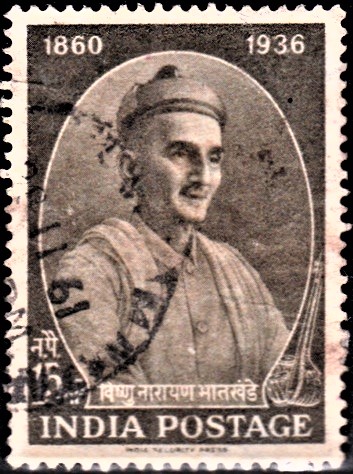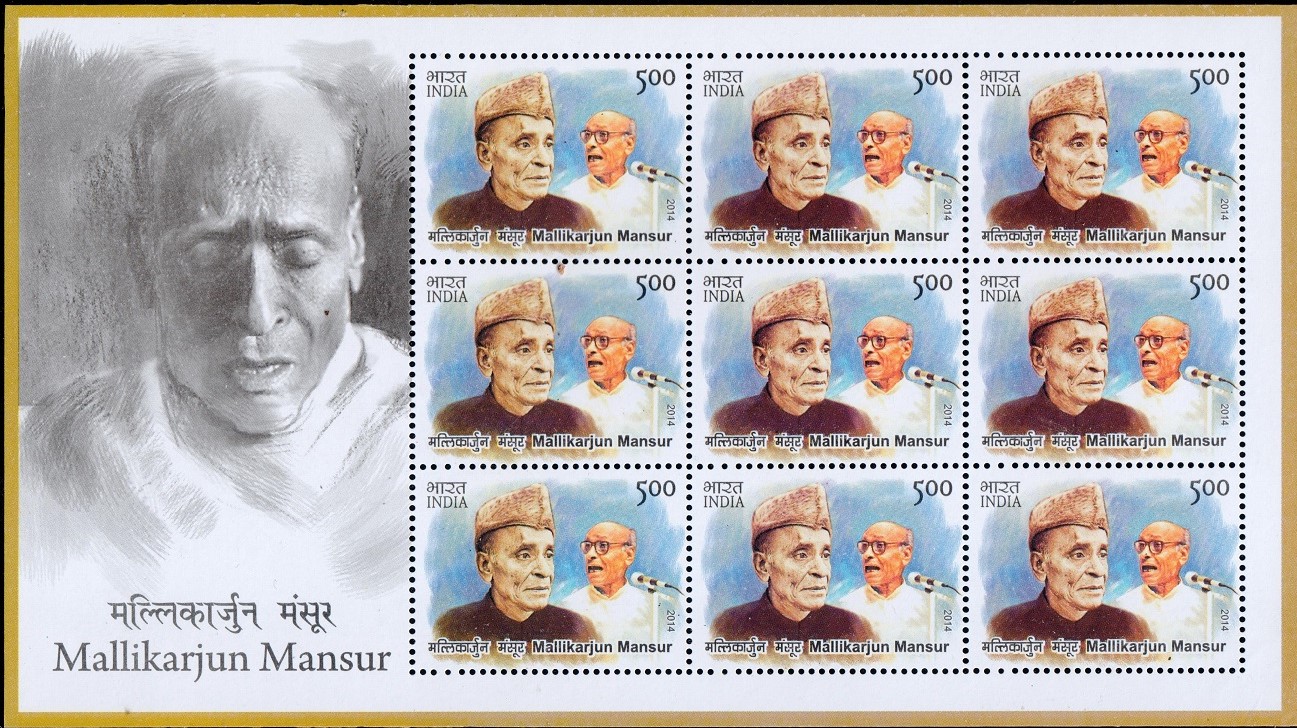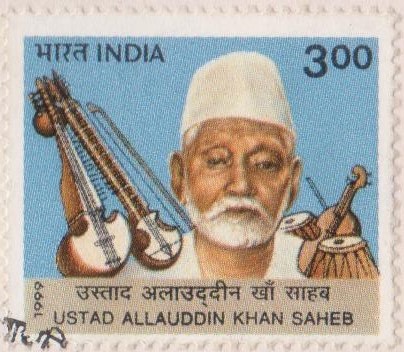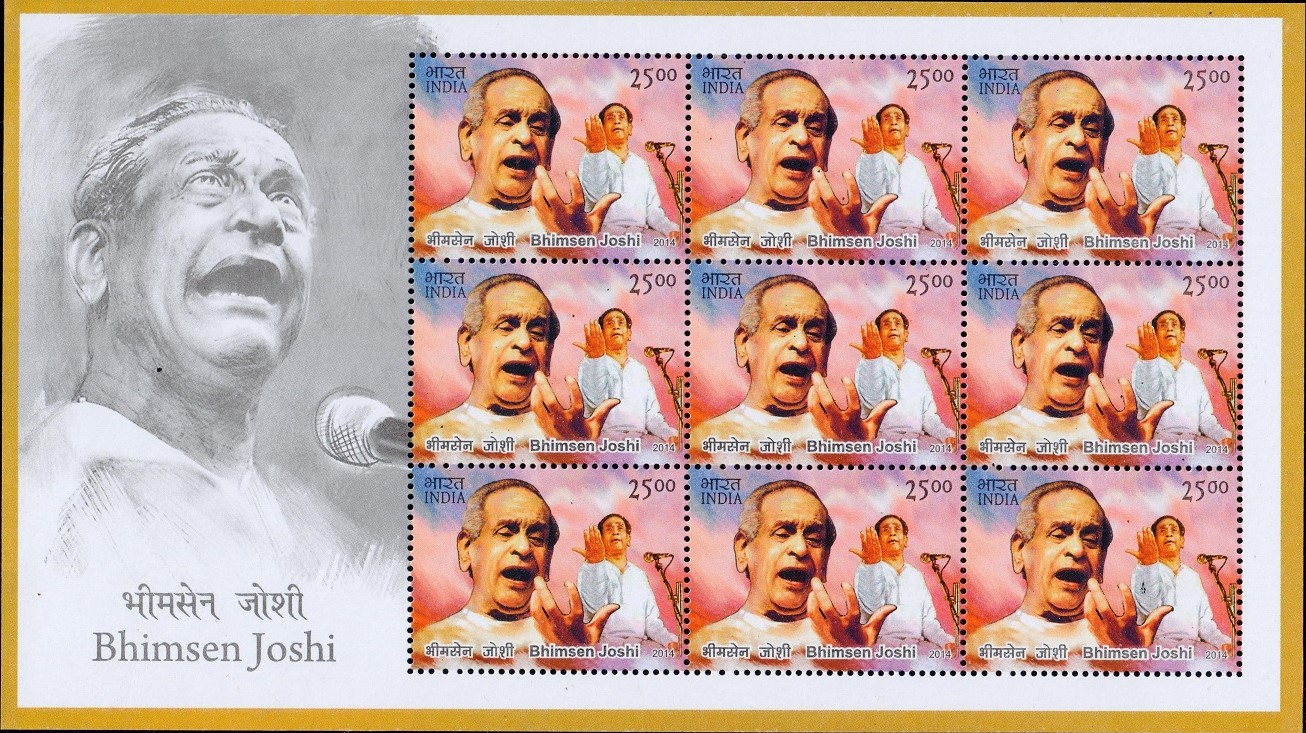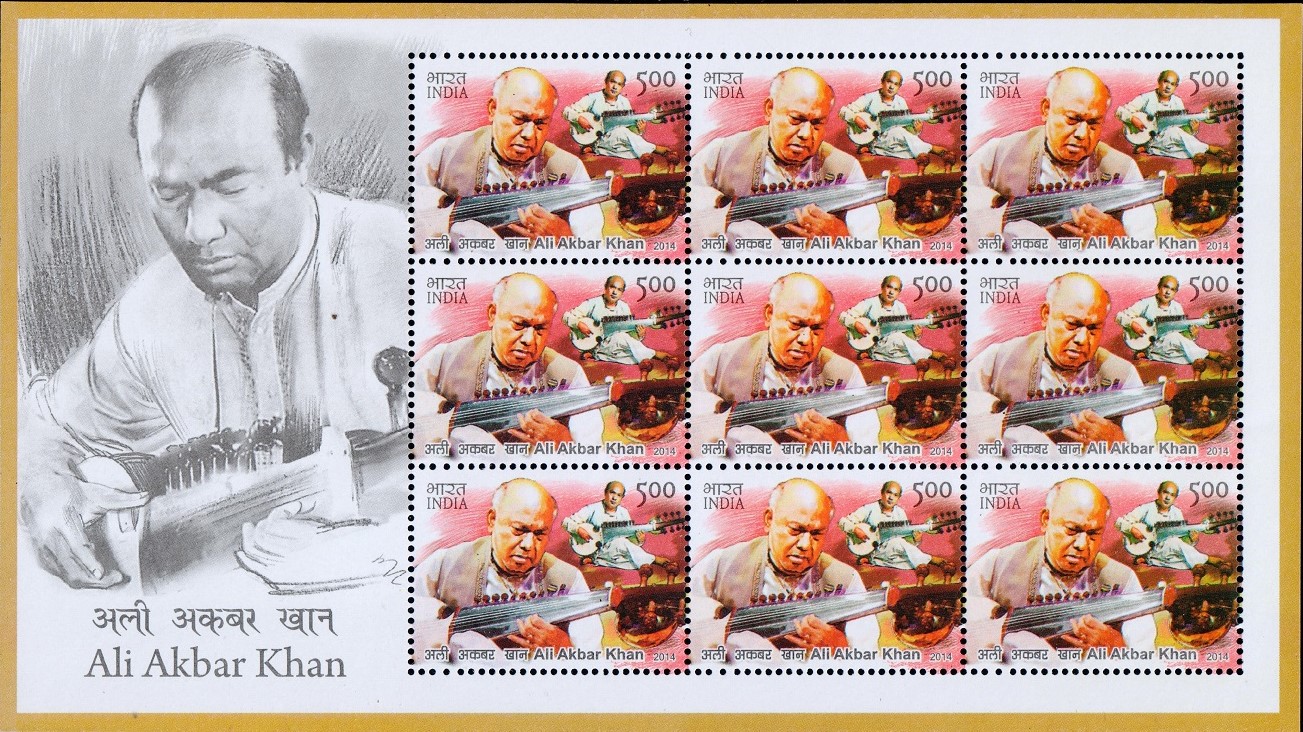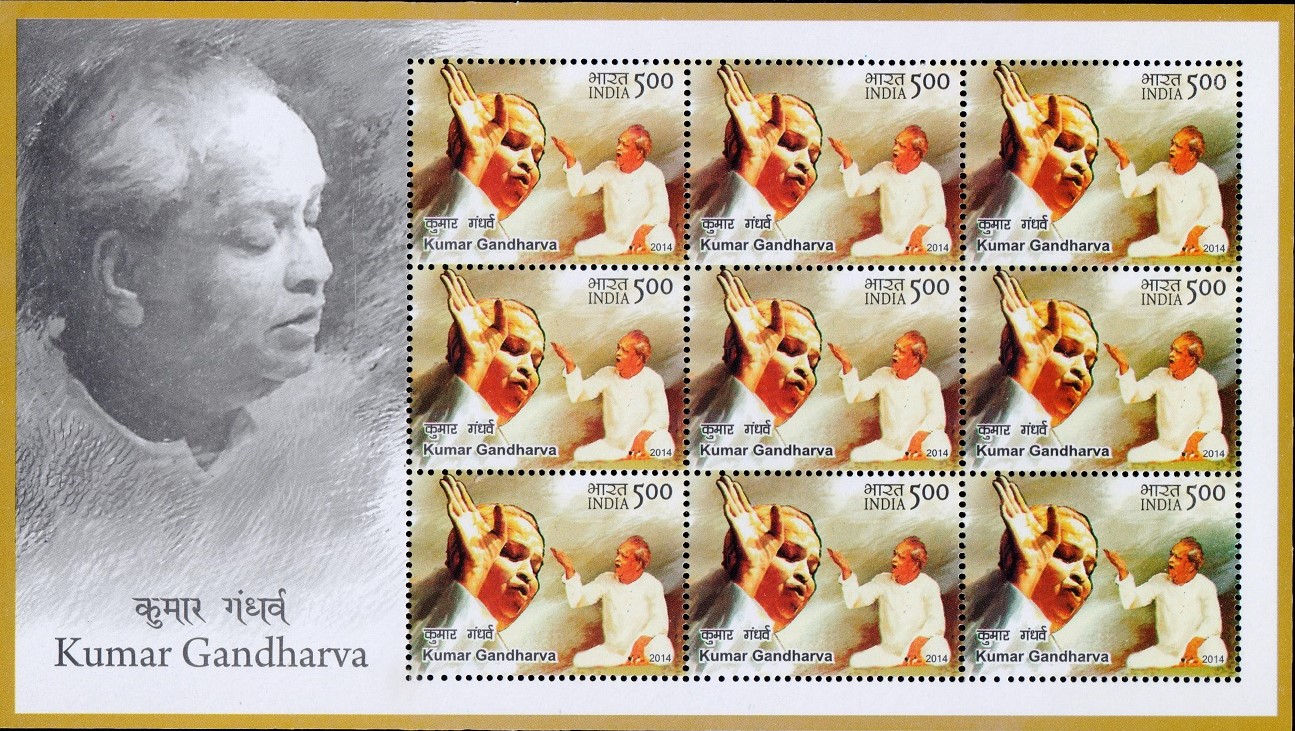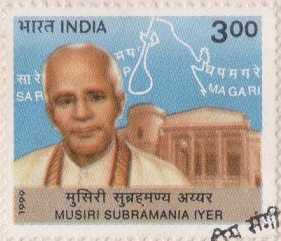
Musiri Subramania Iyer
A commemorative postage stamp on Musiri Subramania Iyer, a Carnatic vocalist [a part of the series ‘Modern Masters of Indian Classical Music‘] :

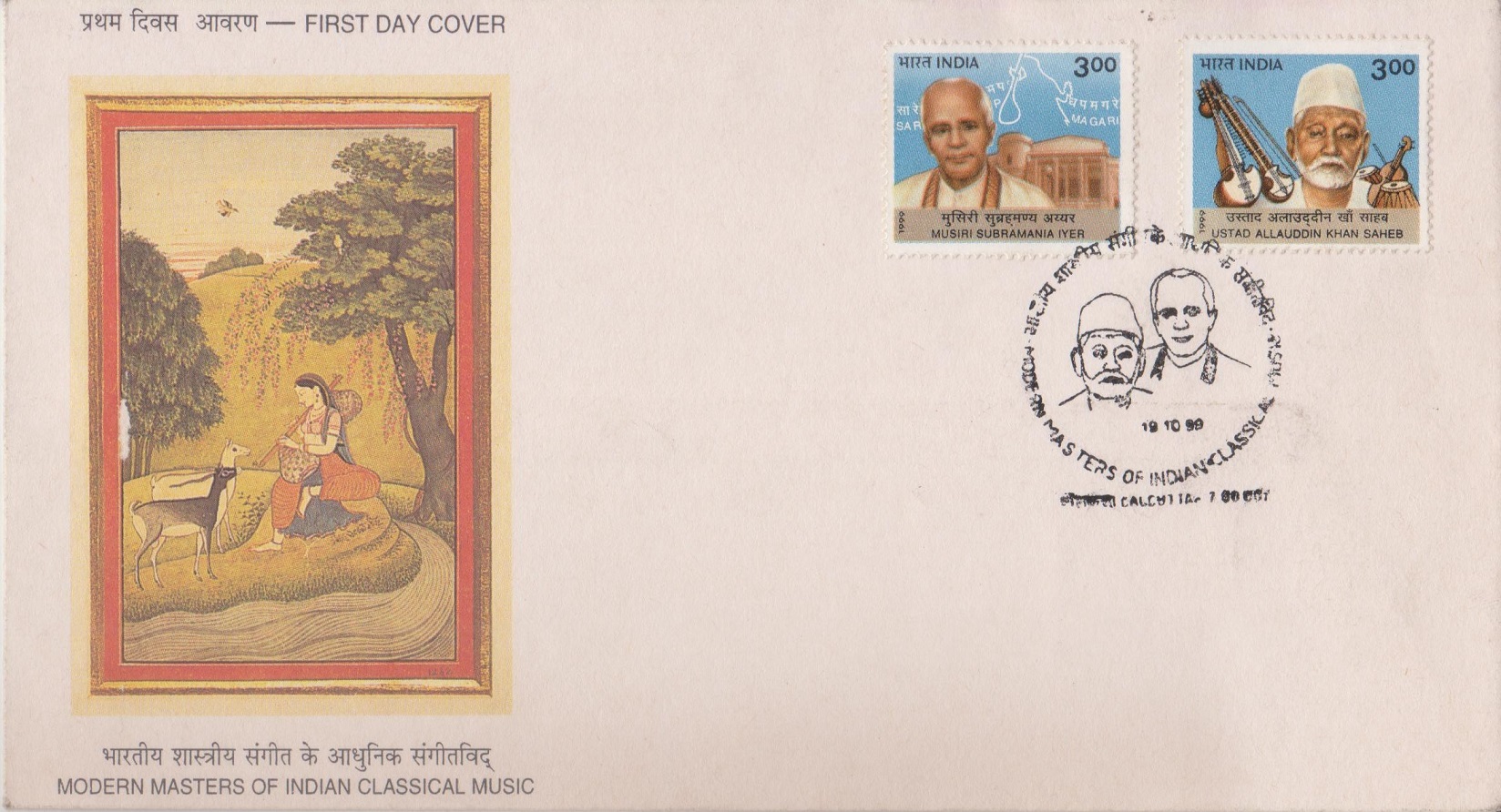 Issued by India
Issued by India
Issued on Oct 19, 1999
Issued for : Indian Music has a long unbroken continuously evolving tradition back to the period of the Vedas. Development of music commenced with the folk idiom, evolved in consonance with regional ingenuity and slowly grew into classical forms. Differing from region to region, there is an underlying unity in Indian classical music. There are two systems of music in India, the Carnatic and the Hindustani, which are highly dramatised. These are supplemented by folk music, bhajans and kirtans. The Department of Posts pays tribute to this ‘Unity in Diversity’ in Indian music through issue of a set of commemorative stamps on two masters of classical music of the modern era, one from the Carnatic School and the other, Hindustani.
Design : The F.D.C. depicts a Ragmala painting, “Gujari“.
Credits :
Stamp : ISP, Nashik based on a design by R.N. Pasricha
FDC : National Museum
Cancellation : Alka Sharma
Type : First Day Cover
Colour : Multi Colour
Denomination : 300 Paise
Overall size : 3.34 x 2.88 Cms.
Printing size : 2.99 x 2.53 Cms.
Perforation : 13 x 13
Paper : Imported unwatermarked Adhesive Gravure Coated Stamp Paper in Sheets 50.8 x 53.5 cms.
Stamps Printed : 0.4 Million
Number per issue sheet : 35
Printing Process : Photogravure
Printer : India Security Press, Nashik
Name : Musiri Subramania Iyer
Born on Apr 9, 1899 at Bommalapalayam, Trichy district, Tamil Nadu, India
Died on Mar 25, 1975 at Chennai, India
About :
- Musiri Subramania Iyer (1899-1975) was one of the giants of Carnatic Music in the country. He was not only a great musician but also a great teacher. After completing his musical training with a long spell under another legendary figure, Vidvan Sabhesa Iyer, Musiri began his career as a concert artist. Blessed with a beautiful high pitched voice with perfect total purity (Sruthi), Musiri was a great exponent of Bhava, bringing out the full emotional content of the Krithis that he sang. He was a specialist in Vilamba Sangitham, a slower tempo which exuded tranquillity. Special mention must be made of Musiri’s Neraval singing, which his audience invariably found to be very moving. In 1949, he was appointed as the first Principal of the Central College of Carnatic Music. During his tenure, he influenced a whole generation of musicians. Several honours and awards were showered on him. In 1939, he was awarded the ‘Sangita Kalanidhi’ by the Music Academy of Chennai. In 1967, he was made a Fellow of the Sangit Natak Academy. The President of India honoured him with the ‘Padma Bhushan’ in 1971. Musiri was a great devotee of the great composer, ‘Thyagaraja’, whose compositions he rendered with rare feeling and fervour.
- Text : Based on material furnished by the sponsors.


